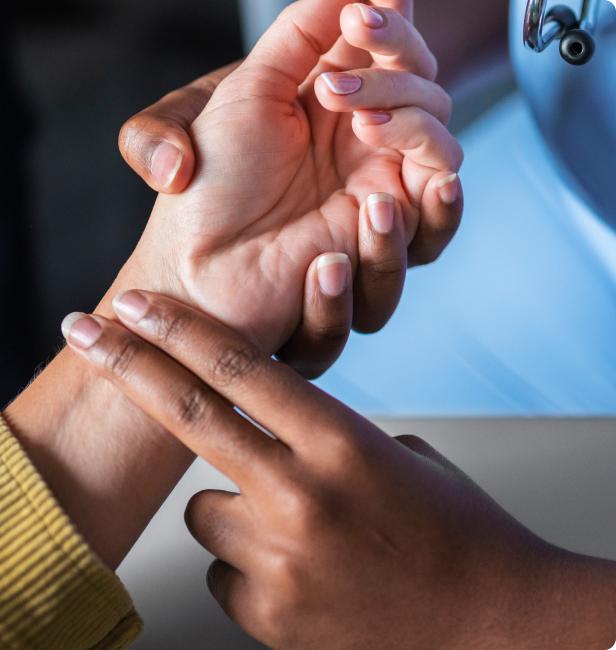
safe & sound: how zuri health delivers your medications with unwavering trust
Safe & Sound: How Zuri Health Delivers Your Medications with Unwavering Trust
Your Health, Our Priority: Understanding Secure Medicine Delivery
In today's fast-paced world, accessing essential medications conveniently and safely has become more crucial than ever.
For many, the idea of medication delivery brings immediate relief – no more long queues at the pharmacy, no more battling traffic.
But beyond convenience, a fundamental question emerges: how can you be truly certain that your vital prescriptions arrive safely, securely, and exactly as intended?
This is where the principles of brand trust and seamless service become paramount. This article delves into the rigorous measures and innovative practices that define a truly secure medicine delivery system, ensuring your well-being remains the absolute priority.
We'll explore the critical elements that contribute to a trustworthy pharmaceutical supply chain, offering you valuable insights into what to look for in a reliable medication delivery service.
When it comes to health, there's no room for compromise. The journey of your medication, from the pharmacy shelf to your doorstep, involves a complex chain of custody.
Any weak link in this chain can have serious implications. From maintaining the integrity of temperature-sensitive drugs to preventing counterfeits and ensuring patient privacy, the challenges are significant.
That's why a service dedicated to upholding the highest standards of safety and transparency is not just a convenience, but a necessity. Understanding these processes empowers you to make informed decisions about your healthcare, fostering the confidence that your health is in capable hands.
The Pillars of Trust: Core Principles of Secure Medicine Delivery
Ensuring the safe delivery of medication is not a simple task; it requires a multi-faceted approach built on robust systems and unwavering commitment.
Here are the core pillars that underpin a truly secure medicine delivery service:
1. Authenticity and Quality Control: Beyond the Bottle
The first and arguably most critical step in safe medicine delivery is guaranteeing the authenticity and quality of the medications themselves.
Counterfeit drugs are a serious global threat, posing significant risks to public health. A reliable delivery service must have stringent protocols in place to source medications only from reputable and licensed manufacturers and distributors.
- Verified Sourcing: Medications should only be procured from certified pharmaceutical wholesalers and manufacturers who adhere to strict international quality standards, such as Good Manufacturing Practices (GMP). This includes thorough background checks and continuous monitoring of suppliers.
- Batch Verification: Each batch of medication received should undergo a rigorous verification process. This often involves checking batch numbers, expiry dates, and tamper-evident packaging. Advanced systems can even track medication serial numbers to prevent diversion or counterfeiting.
- Temperature-Controlled Storage: Many medications require specific temperature conditions to maintain their efficacy. A secure facility must have climate-controlled storage solutions, including refrigeration for sensitive drugs, with continuous monitoring to ensure optimal conditions are maintained 24/7.
- Regular Audits: Independent and internal audits of suppliers and storage facilities are essential to ensure ongoing compliance with quality and safety regulations.
2. Secure Packaging and Handling: Protecting Your Prescription
Once verified, the packaging and handling of medications before delivery are equally vital. Proper packaging protects the medication from damage, contamination, and tampering during transit.
- Tamper-Evident Packaging: All medication packages should be sealed with tamper-evident features. This provides a clear visual indication if the package has been opened or compromised before reaching the patient. This could include security tape, unique seals, or specialized packaging designs.
- Protective Cushioning: Medications, especially glass vials or delicate formulations, require adequate internal cushioning to prevent breakage from impacts during transportation.
- Temperature-Controlled Packaging for Transit: For temperature-sensitive medications, specialized insulated packaging and cold packs are used during transit to maintain the required temperature range, even for short delivery windows. This is crucial for vaccines, insulin, and certain biological drugs.
- Discreet Packaging: While ensuring security, packaging should also be discreet to protect patient privacy, avoiding any outward indication of the contents.
3. Robust Delivery Protocols: From Dispatch to Doorstep
The delivery phase is where the medication transitions from the secure facility to the patient. This stage demands precise protocols to ensure accuracy, speed, and security.
- Trained Delivery Personnel: Delivery agents are not just couriers; they are a vital link in the healthcare chain. They should undergo rigorous training in handling medications, maintaining confidentiality, and following strict delivery procedures. This includes training on cold chain management for sensitive items.
- Identity Verification at Delivery: To prevent mis-delivery and ensure the medication reaches the intended recipient, robust identity verification protocols are essential. This may involve checking the recipient's ID, requiring a signature, or using one-time passcodes sent to the registered mobile number.
- Real-Time Tracking and Monitoring: Patients should have the ability to track their medication delivery in real-time. This not only provides peace of mind but also allows for proactive communication in case of unexpected delays. For the delivery service, real-time GPS tracking of delivery vehicles enhances security and efficiency.
- Secure Chain of Custody: Every handover point, from the pharmacy to the delivery agent and finally to the patient, should be documented. This creates a clear audit trail, ensuring accountability at every stage.
- Secure Payment Systems: Integrated secure payment gateways protect financial transactions and customer data.
4. Data Privacy and Security: Protecting Your Information
In the digital age, protecting sensitive patient information is as critical as safeguarding the medications themselves. Compliance with data protection regulations is paramount.
- HIPAA/GDPR Compliance: A reputable service adheres to strict data privacy regulations like HIPAA (Health Insurance Portability and Accountability Act) in the US, GDPR (General Data Protection Regulation) in Europe, and similar local regulations concerning patient health information.
- End-to-End Encryption: All digital communication, from prescription uploads to delivery notifications, should be secured with end-to-end encryption to prevent unauthorized access to sensitive data.
- Secure Databases: Patient records, prescription details, and delivery information must be stored in highly secure, encrypted databases with restricted access.
- Strict Access Control: Only authorized personnel with a legitimate need should have access to patient data, and access should be logged and regularly audited.
5. Emergency Preparedness and Contingency Planning: Ready for Anything
Despite the best laid plans, unforeseen circumstances can arise. A truly secure system has robust contingency plans to address emergencies and minimize disruptions.
- Alternative Delivery Routes: In case of road closures, severe weather, or other disruptions, alternative delivery routes and methods should be pre-planned to ensure timely delivery.
- Power Outage Protocols: For facilities relying on refrigeration, backup power systems and emergency cold storage solutions are crucial in case of power outages.
- Incident Response Team: A dedicated team should be available to handle any delivery issues, patient inquiries, or security breaches swiftly and effectively.
- Recall Procedures: In the rare event of a product recall, an efficient system must be in place to promptly notify affected patients and retrieve the recalled medication.
Navigating Your Healthcare Journey: Practical Advice for Secure Medication Delivery
Choosing a medication delivery service requires diligence. Here's what you should consider to ensure your health is always in safe hands:
- Check for Licensing and Accreditation: Verify that the service is properly licensed and accredited by relevant health authorities. This demonstrates adherence to regulatory standards.
- Read Reviews and Testimonials: While not exhaustive, checking online reviews and testimonials can offer insights into other users' experiences regarding reliability and safety.
- Understand Their Sourcing Policy: Inquire about where they source their medications from. Reputable services are transparent about their supply chain.
- Clarify Delivery Protocols: Ask about their identity verification process at delivery, their handling of temperature-sensitive medications, and their tracking capabilities.
- Review Data Privacy Policies: Ensure you understand how your personal and health information will be protected.
- Look for Customer Support: A responsive and knowledgeable customer support team is crucial for addressing any concerns or issues that may arise.
Common Questions About Secure Medicine Delivery
Q1: How do I know the medication delivered is authentic?
Reputable services source medications directly from licensed manufacturers and distributors. They employ rigorous quality control checks, including batch verification and adherence to Good Manufacturing Practices (GMP).
You can often verify the authenticity by checking the packaging for tamper-evident seals and valid expiry dates.
Q2: What if my medication needs to be kept cold?
Services specializing in safe medicine delivery use insulated packaging with ice packs or gel packs to maintain the required temperature during transit. They also have climate-controlled storage facilities.
It's important to check if the service specifies their cold chain management protocols for sensitive drugs.
Q3: Is my personal and health information protected?
Absolutely. A trustworthy service adheres to strict data privacy regulations (like HIPAA or GDPR, depending on location).
They use end-to-end encryption for all digital communication and store patient data in secure, encrypted databases with restricted access.
Q4: What happens if my delivery is delayed or I'm not home?
Secure delivery services usually offer real-time tracking so you can monitor your delivery. In case of delays, they should have robust communication channels to inform you.
If you're not home, they typically have protocols for re-delivery attempts, secure drop-off points (if suitable for the medication), or require rescheduling to ensure safe handover.
Q5: How can I verify the identity of the delivery person?
Reputable services train their delivery personnel and may require identity verification from the recipient, such as checking an ID or requiring a signature.
Some might use one-time passcodes sent to your registered mobile number as an added layer of security.
Your Health Can't Wait: Experience Unwavering Trust
The peace of mind that comes with knowing your essential medications are delivered safely, accurately, and with the utmost care is invaluable.
It removes friction from a critical aspect of healthcare, allowing you to focus on your well-being.
By prioritizing authenticity, secure handling, robust delivery protocols, and stringent data privacy, a truly reliable medicine delivery service becomes an indispensable partner in your health journey.
Don't compromise when it comes to your health and the integrity of your medications.
Your Health Can't Wait
Chat with Doc via:
SMS: Text 'Zuri' to 21702
WhatsApp: Text 'Hi' to +254756551551
Visit Our Website: www.zuri.health
Share this post
Latest blog posts
Tool and strategies modern teams need to help their companies grow.

Zuri Health
•
11/13/2025
diabetes iko hapa kwa mtaa: a weekend that opened my eyes
Diabetes Iko Hapa Kwa Mtaa: A Weekend That Opened My Eyes
health

Zuri Health
•
11/07/2025
speech by the principal secretary during the launch of petals by zuri health – a women's health initiative
During the Launch of Petals by Zuri Health – A Women’s Health Initiative
news

Zuri Health
•
09/10/2025
numbers inform. stories transform. why storytelling is changing how we talk about health
Numbers Inform. Stories Transform. Why Storytelling Is Changing How We Talk About Health
news
Join Our Community 
Join our community to stay up to date on healthy living



